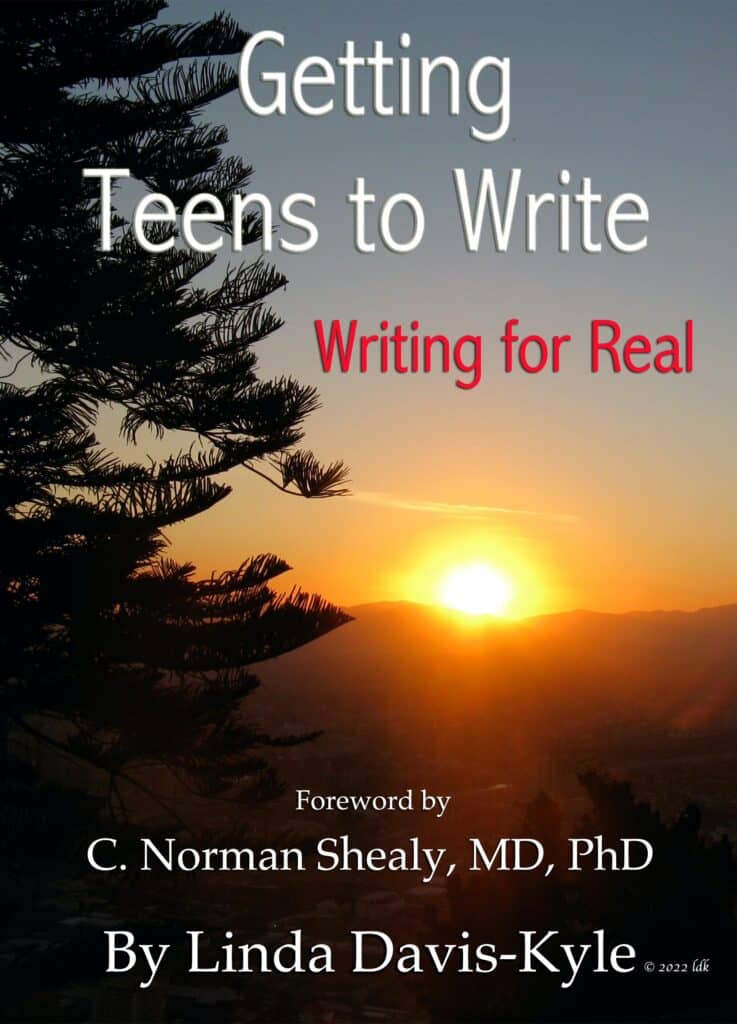Giving Gifts That Matter
By Linda Davis-Kyle
Sometime ago when I entered my acupuncturist’s well-lit, but tiny, four-chair waiting room filled with the fragrance of frankincense, a mom and her two children were getting settled. The mom’s lap served as a comfy chair for her daughter who was about two years old. The little pink bow in her daughter’s curly golden hair was about to fall off. The mom raised and tightened the bow. She struggled a bit to hold the daughter and a small electronic game to pacify her son who leaned against her. His right hand clutched tightly to the inside of his mom’s left elbow. His dark blue jeans, red cotton shirt, and red sneakers were new and well cared for, just as both children obviously were.
The mom and I smiled at each other and said, “Hello.” The youngsters and I simply smiled at each other, as I sat down.
When I began to proofread a manuscript, the handsome little blue-eyed fellow immediately lost interest in the electronic game and abandoned his mom’s arm. He came near, leaned over between my work and me, and peered at my words with deep interest. I held my manuscript, in its portfolio that kept it sturdy and offered him my pen and the blank back side of several pages so that he could “write.”
Ecstatic to be offered these tools and loving the attention, he scribbled lots of little waves, peaks, valleys, curves, and circles with joy for quite some time. I turned pages for him as if he were playing at a piano recital. He hugged my pen to his heart each time he finished a page. Sometimes he laughed a little between “sentences.” His mom, baby sister, and I watched as he filled almost four pages.
When this young “writer” completed his pleasant task, I asked him to tell me about what he had written. He said, “Oh. It’s a story!” Then he proceeded to “read” about his mom, his dad, his little sister, and their dog and even their goldfish. His totally surprised mom looked on in awe and smiled from ear to ear.
I swiftly gave this precious young “writer-in-the-making” the pages of his story along with my pen when the acupuncturist called me. As I said, “Goodbye,” my sincere hope was that his mom would continue to offer such writing fun to him daily.
In Getting Teens to Write: Writing for Real, I quote Octavia Estelle Butler who said, “… write every day, no excuses.”
Dyslexics and non-dyslexics alike often feel joy when they “write” at a tender age. Many writers of many ages feel joy when they write to express themselves. When we as parents, grandparents, step parents, single parents, foster parents, educators, teachers, homeschoolers, writing coaches, and friends give the gift of undivided attention to aspiring writers, we help them to see themselves in a positive light.
If any struggles arise, if we give encouragement, then we give them a precious gift that can help them to keep on keeping on and never give up their dream to write.
The following account appears in Helping Dyslexics to Write: Using Mind Maps for Fun.
In Bloodchild and Other Stories, Octavia Estelle Butler said, “I pecked my stories out two fingered on the Remington portable typewriter” that she had begged her mother to buy for her when she was 10. Filled with ambition and drive, Butler also says that in junior high she asked Mr. Pfaff, her science teacher, to type one of her stories “the way it was supposed to be” for submission to a science fiction magazine. At age 12, she wrote the influential version for her Patternist series of science fiction novels.
Butler reached an enviable height of success as she continued to write each day, year after year. Think how fortunate she was to have help to keep her dream alive and to see it bloom.
Perseverance comes more easily when aspiring dyslexic and non-dyslexic writers are given thoughtful attention and useful instruction.
Just like the seedlings that grow and thrive beautifully when they receive fresh air, gentle sun, clean water, and love from their gardeners, the very young, the ‘tweens, the teens, and those beyond, who long to write, will succeed when given the greatest gifts of all—attention, careful instruction, thoughtful evaluation to help them get on track and stay on task, and genuine admiration from those who care about enhancing and protecting their excellent mental, emotional, physical, and spiritual health.
Having someone who truly cares and believes in aspiring writers helps them enormously to believe in themselves. And when they do believe in themselves, they can conquer obstacle after obstacle to win their writing goals and even go on to help other writers win, too.
Sources
Butler, Octavia Estelle. Bloodchild and Other Stories. New York: Seven Stories Press, 2005, p. 127.
Davis-Kyle, Linda. Getting Teens to Write: Writing for Real. Austin: WritngNow.com, 2022.
_______________. Helping Dyslexics to Write: Using Mind Maps for Fun. In progress. Excerpt reprinted here with permission.
Linda Davis-Kyle, MA in English, has written several hundred general interest and fitness and health articles published in more than a dozen countries in North America, Europe, Africa, Asia, and Australia. WritingNow.com introduces her current ebooks available—Teaching English to Children, Getting Ready to Write, Getting Teens to Write, and Good Food Recipes for Your Kids to Make with Your Help. Her ebooks in progress are Helping Dyslexics to Write, Writing about Your Pets #1, Writing about Your Pets #2, and Writing about Classic Animal Films.

Category: Dyslexia







